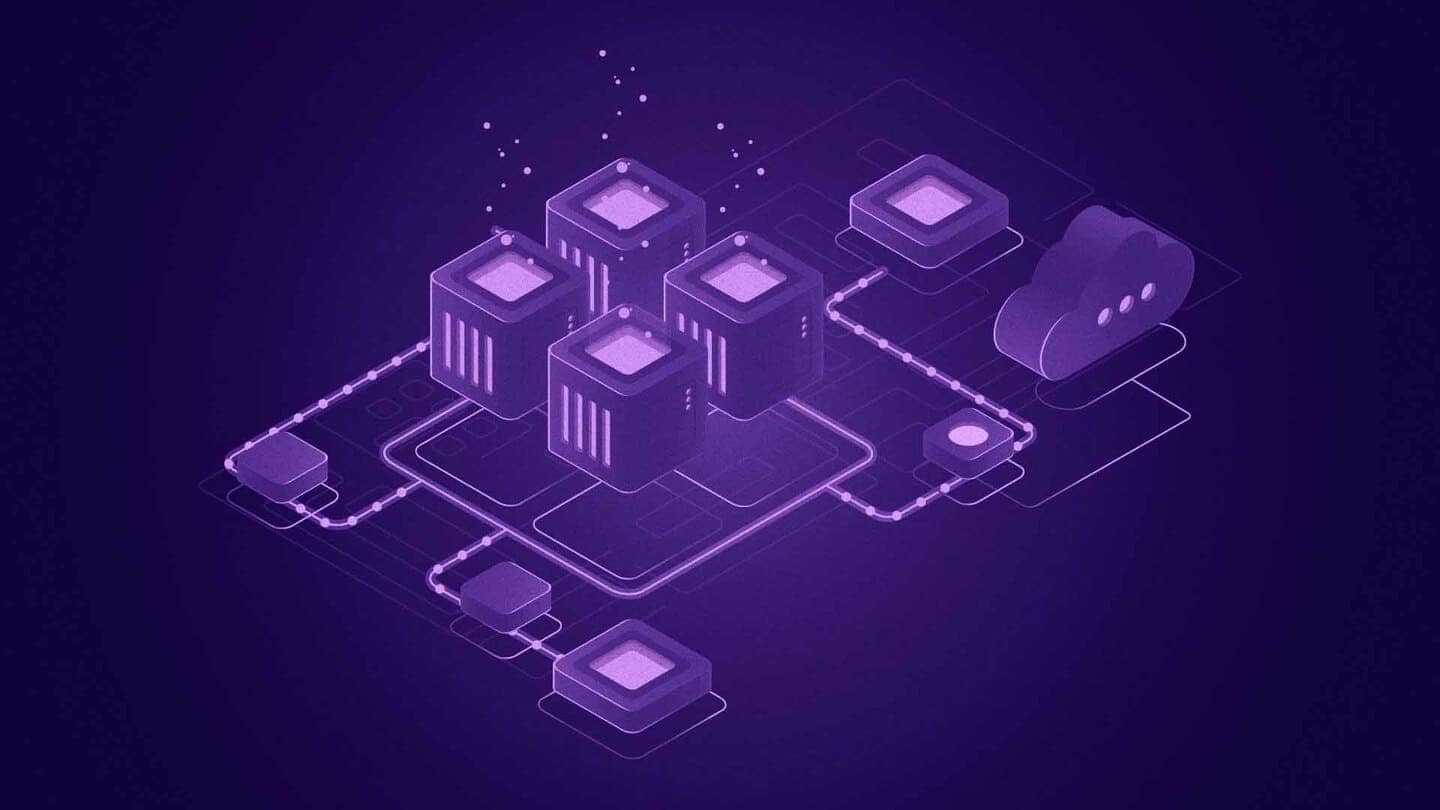Blockchain technology has revolutionized various sectors by providing a decentralized, transparent, and secure way of managing data and transactions. However, not all blockchains are created equal. Two primary types exist: private and public blockchains.
Understanding their differences is crucial for anyone seeking answers to the question of how do blockchains work and their implementation for business solutions. This article discusses the key differences between public and private blockchains, considering their characteristics, use cases, and implications.
What is a Public Blockchain?
A public blockchain is a decentralized network where anyone can join, participate, and view transactions. These transactions, which are recorded and accessible to anyone, ensuring complete transparency and trust in the system, are called public ledger in the blockchain.
Public blockchain operates on a decentralized network, meaning no single entity controls it. Bitcoin and Ethereum are the most well-known public blockchain examples.
Public blockchains offer a secure and transparent platform for many applications beyond cryptocurrencies. In healthcare, they can enhance electronic health record sharing and improve medical supply chain transparency. Finance is another sector benefiting from public blockchain technology, with applications in digital identity verification and cross-border payments. By leveraging public blockchains’ decentralized and immutable nature, these industries can improve efficiency, security, and trust while empowering individuals to control their data.
Key features of public blockchains include:
- Decentralization: Public blockchains operate without a central authority, distributing control across the network.
- Transparency: Transactions are visible to all participants, ensuring accountability and trust.
- Immutability: Once recorded, data cannot be altered, ensuring the integrity of the blockchain.
- Security: Leveraging cryptography, public blockchains are highly secure
What is a Private Blockchain?
Unlike public blockchains, private blockchains are permissioned networks accessible only to authorized participants. They typically restrict participation to a predefined group of individuals or organizations. Examples include enterprise solutions for supply chain management and financial services.
Private blockchains find applications across various sectors, including supply chain management or government. Supply chain management benefits from increased transparency and traceability, while governments can leverage private blockchains for secure voting systems, identity verification, and reliable government services.
Key characteristics of private blockchains include:
- Access Control: Only authorized participants can join and interact with the network.
- Privacy: Transactions and data are visible only to participants with the necessary permissions, ensuring confidentiality.
- Governance: A central entity or consortium governs the blockchain, making protocol changes and access decisions.
Private blockchain examples include enterprise solutions like Hyperledger and Corda, which cater to businesses needing privacy and controlled access.
Key Differences Between Public and Private Blockchains
Public and private blockchains diverge significantly in architecture, governance, transaction speed, and cost efficiency. The differences between private and public blockchains are discussed below:
Architecture: Public blockchains are decentralized, with no central authority controlling the network. Conversely, private blockchains operate under centralized control, with access restricted to authorized participants.
Governance: Network participants collectively govern Public blockchains, while a specific organization or consortium manages private ones.
Transaction Speed: Due to the consensus mechanisms required for validation, public blockchains tend to have slower transaction speeds than private blockchains, which can process transactions more rapidly due to centralized control.
Cost-Efficiency: Transaction fees on public blockchains can be higher due to network congestion and competition for block space. Private blockchains, being less decentralized, often have lower transaction costs.
Advantages of Public Blockchains
Public blockchains offer several benefits, including:
- Security through decentralization in blockchain: The distributed nature reduces the risk of single-point failures and attacks.
- Transparency: Open access to transaction data fosters trust among participants.
- Resistance to censorship: Decentralization in blockchain ensures that no single entity can control or censor the network.
Advantages of Private Blockchains
Private blockchains also have distinct advantages, such as:
- Faster transaction speeds: Limited participants and controlled access result in quicker transaction processing.
- Scalability: Easier to scale for specific business needs without the constraints of public consensus mechanisms.
- Enhanced Privacy: Suitable for businesses requiring confidentiality and data protection.
Disadvantages of Public and Private Blockchains
While public and private blockchains offer distinct advantages, they also come with their own set of challenges.
Public blockchains face limitations such as high energy consumption due to the computational power required for consensus mechanisms. Additionally, the public nature of these blockchains can lead to privacy concerns, as transaction data is visible to everyone. Scalability is another issue, as the number of transactions that can be processed within a given timeframe is constrained.
Private blockchains, on the other hand, can need more transparency and trust, as a central authority controls them. The degree of decentralization is often limited, raising concerns about censorship and manipulation. Furthermore, while private blockchains can achieve higher transaction speeds, they may face scalability challenges as the network grows.
Choosing Between Public and Private Blockchains
The choice between private vs. public blockchain depends on the specific requirements of a project or organization. Public blockchains, such as cryptocurrencies and decentralized finance, are ideal for applications prioritizing decentralization, transparency, and immutability. Private blockchains are better suited for enterprise use cases where data privacy, control, and performance are paramount.
FAQs on Public and Private Blockchains
What Are the Security Implications for Public vs. Private Blockchains?
Public blockchains are inherently more secure due to their decentralized nature, making it difficult for attackers to compromise the entire network. Private blockchains rely on robust security measures and access controls to protect data.
How Do Public and Private Blockchains Scale?
Public blockchain scalability usually encounters challenges due to the increasing number of transactions. Layer-2 solutions and sharding are being explored to address this. Meanwhile, private blockchains can achieve higher scalability through centralized control and optimization.
Can a Private Blockchain Become Public?
Yes, a private blockchain can transition to a public blockchain. This process involves modifying access controls and governance structures to allow open participation, becoming a public-private blockchain.
Can Blockchains Be Hacked?
While the underlying technology of blockchain is designed to be incredibly secure, vulnerabilities often arise from external factors rather than the blockchain itself.
The decentralized nature of blockchain and its use of cryptography makes it highly resistant to hacking. However, users can still fall victim to attacks targeting their digital wallets, cryptocurrency exchanges, or through social engineering tactics like phishing. It’s crucial to employ robust security measures, such as using reputable exchanges, safeguarding wallet information, and being vigilant against scams.
Conclusion
Public and private blockchains offer distinct advantages and are suitable for different use cases. Understanding the fundamental differences between these two types of blockchains is crucial for making informed decisions about blockchain technology adoption. By carefully considering the specific requirements of a project, organizations can select the blockchain model that best aligns with their goals.











